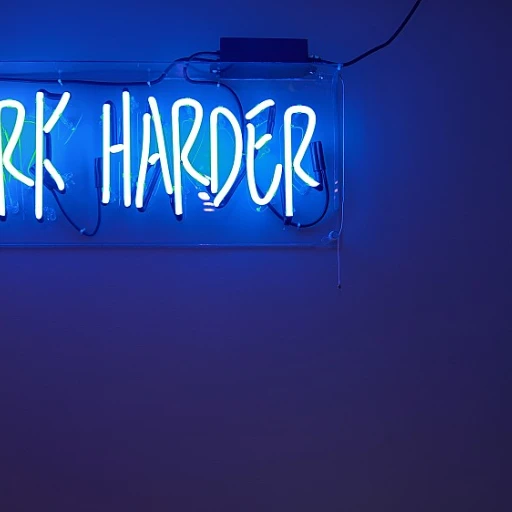
Defining Human Resources and Talent Advisors
Exploring the Distinction Between Human Resources and Talent Advisors
In today's dynamic landscape, understanding the foundations of Human Resources (HR) and Talent Advisors is crucial for organizations looking to optimize their talent acquisition process.Human Resources (HR): Often referred to as the backbone of any company's workforce, HR departments focus on a range of responsibilities from employee relations to recruitment. They ensure compliance with labor laws, administer benefits, and maintain policies that shape the organization's employee experience. HR is integral in managing talent, overseeing the recruitment process, and supporting employee development. This traditional role extends into resource management to fortify the organization's strategic goals.
Talent Advisors: On the other hand, Talent Advisors operate with a sharper focus on sourcing and securing top talent. Unlike the broader roles of HR, these professionals specialize in talent strategy, aligning their objectives with the business’s long-term vision. Their role is pivotal in talent management, ensuring the organization recruits candidates who not only meet existing needs but also possess the potential for future leadership roles.
Grasping the fundamental aspects of each role sets the stage for understanding their approach, impact, and collaboration in talent acquisition strategy, effectively contributing to an organization’s success.
Key Differences in Approach
Distinguishing the Roles in Employee Experience
The approach towards attracting and nurturing talent often reveals stark differences in methodology between human resources and talent advisors. While both play integral roles in shaping an organization's workforce, their strategies and focuses can differ significantly. Understanding these differences can enhance your company's talent acquisition strategy.
Human resources departments traditionally focus on a broad spectrum of personnel management tasks. This function ranges from handling employee relations to ensuring compliance with labor laws. They manage various facets of resource management, which include policy implementation, payroll, and benefits administration. Consequently, HR roles often involve a more structured and regulated approach in dealing with the employee lifecycle from recruitment to retirement.
On the other hand, talent advisors bring a more specialized perspective, primarily focusing on the recruitment process and the acquisition of high-caliber candidates. They utilize advanced recruitment techniques to source top talent, aligning with the long-term strategic goals of the organization. Talent advisors strive for a more personalized engagement with candidates, often involving themselves deeply in the candidate experience to foster positive impressions of the company.
The difference between these roles lies in their strategic focus. Human resources tend to concentrate on internal management processes and employee satisfactions. Meanwhile, talent advisors are charged with the external aspects of candidate attraction and engagement. This distinction should not imply that one is more critical than the other, as both are indispensable within a holistic management talent framework.
Impact on Talent Acquisition Strategy
Influence on Talent Acquisition Practices
In the evolving landscape of talent management, understanding the roles of Human Resources (HR) and Talent Advisors can significantly impact a company's recruitment and hiring strategies. The ways in which these roles interact with the talent acquisition process can lead to substantial differences in the overall strategy and effectiveness. Human Resources traditionally focuses on the broader spectrums of employee relations and resource management. Their involvement in talent acquisition is part of a wider HR strategy aimed at maintaining a stable and productive workforce. In contrast, Talent Advisors often adopt a more specialized approach, honing in on acquiring top talent and aligning the recruitment process with the long-term vision of the organization. A core aspect where their influence is felt is in the prioritization and application of strategies. While HR might implement policies and protocols that support the overarching human resource strategy, Talent Advisors are keen on identifying and leveraging innovative recruiting techniques that ensure the attraction of high-caliber candidates. This difference between the HR perspective and the nuanced, candidate-centric approach adopted by Talent Advisors can lead to variations in outcomes. Moreover, Talent Advisors have a strategic eye for aligning talent strategy with business goals, which often involves working closely with leadership, such as a Vice President of HR, to shape the wider talent acquisition strategy. By doing so, they help create a more cohesive talent formula that supports sustained organizational growth. For organizations striving for a robust acquisition talent strategy, acknowledging these nuanced roles can vastly improve their talent outcomes. Understanding how these roles contribute differently to talent management can enable businesses to refine their recruitment process, ensuring a steady influx of exceptional talent that aligns with business objectives. For additional insights on aligning HR strategies with talent acquisition, reviewing the role of strategic HR leadership is imperative here.Skills and Competencies Required
Essential Skills for Effective Talent Acquisition
In the evolving landscape of talent acquisition, both Human Resources (HR) professionals and Talent Advisors play pivotal roles. However, the skills and competencies required for each can differ significantly, shaping how they contribute to an organization's recruitment process and overall talent strategy.
Core Competencies for Human Resources Professionals
Human Resources professionals are the backbone of employee relations and resource management. Their skill set often includes:
- Employee Relations: HR professionals must excel in managing employee relations, ensuring a positive employee experience and addressing any workplace issues effectively.
- Regulatory Knowledge: A deep understanding of labor laws and compliance is crucial for maintaining the organization's legal standing.
- Communication Skills: Effective communication is key in HR for both internal and external interactions, facilitating smooth operations within the workforce.
- Organizational Skills: Managing various HR processes, from recruitment to onboarding, requires strong organizational capabilities.
Key Skills for Talent Advisors
Talent Advisors, on the other hand, focus more on strategic talent management and acquisition. Their competencies include:
- Strategic Thinking: Talent Advisors need to align recruitment strategies with long-term business goals, ensuring the acquisition of top talent that fits the company culture.
- Market Insight: Understanding market trends and the competitive landscape is vital for advising on effective talent acquisition strategies.
- Relationship Building: Building strong relationships with candidates and hiring managers is essential for successful talent management.
- Analytical Skills: Talent Advisors often analyze recruitment data to refine strategies and improve the hiring process.
Bridging the Gap Between HR and Talent Advisors
While there are distinct differences between the roles, collaboration between HR and Talent Advisors is crucial for a cohesive talent acquisition strategy. By leveraging their unique skills, organizations can enhance their recruitment process, ensuring they attract and retain the best candidates for their workforce.
Collaboration Between HR and Talent Advisors
Fostering Synergy in Recruitment Efforts
In today's dynamic business environment, the effective collaboration between Human Resources and Talent Advisors is essential in creating a smoothly functioning talent acquisition process. While they both aim toward recruiting and retaining top talent, their approaches and focuses may vary. HR traditionally covers a broad range of responsibilities related to managing the workforce, including employee relations and resource management. Talent Advisors, on the other hand, are specialized in digging deep into the acquisition of top-notch candidates and enhancing the overall talent strategy. To align efforts, it's crucial for HR and Talent Advisors to engage in proactive communication and establish shared objectives. This means:- Defining Clear Roles: Understanding the difference between HR and Talent Advisors can help clarify roles and responsibilities within the recruitment process. HR may focus on compliance and employee relations, while Talent Advisors may hone in on strategic recruiting and candidate experience.
- Regular Meetings: Implement structured meetings to discuss goals and setbacks. This ensures both teams are aligned with the company's long-term talent management strategy.
- Shared Tools and Data: Utilizing the same data sources and technologies can enhance cooperation. By having access to shared recruitment tools, such as applicant tracking systems, both HR and Talent Advisors can streamline hiring processes and share insights on candidate selection.
- Talent Insights: Talent Advisors can provide valuable market insights that can inform HR strategies, helping them adjust talent management strategies according to current trends and candidate expectations.
Future Trends in Talent Acquisition
Anticipating Shifts in the Talent Arena
Looking ahead, the landscape of talent acquisition is positioned for some intriguing shifts. These changes will likely influence how companies approach their talent management strategies and impact both human resources groups and talent advisors.- Adoption of Advanced Technologies: The integration of AI and machine learning in recruitment processes is on the rise. These innovations can streamline recruitment, offering predictive analytics for better decision-making, enhancing the overall candidate experience.
- Emphasis on Employee Experience: As the competition for top talent intensifies, organizations will need to focus on crafting a positive employee experience. This involves personalized career development opportunities, flexible work arrangements, and a culture that values employee relations.
- Strategic Collaboration: Maintaining a seamless partnership between HR teams and talent advisors is becoming increasingly crucial. This collaboration fosters a cohesive recruitment strategy, balancing the strengths of both functions to manage talent effectively.
- Focus on Diversity and Inclusion: Businesses are expected to prioritize diversity and inclusion in their recruitment strategies more than ever before. This ongoing trend will require talent acquisition specialists to implement inclusive practices to attract a broad talent pool.
- Remote Work and Gig Economy: The prevalence of remote working trends and the gig economy influences how organizations source and manage talent. Human resources and talent advisors may need to adapt their strategies to best support employed and freelance candidates alike.













